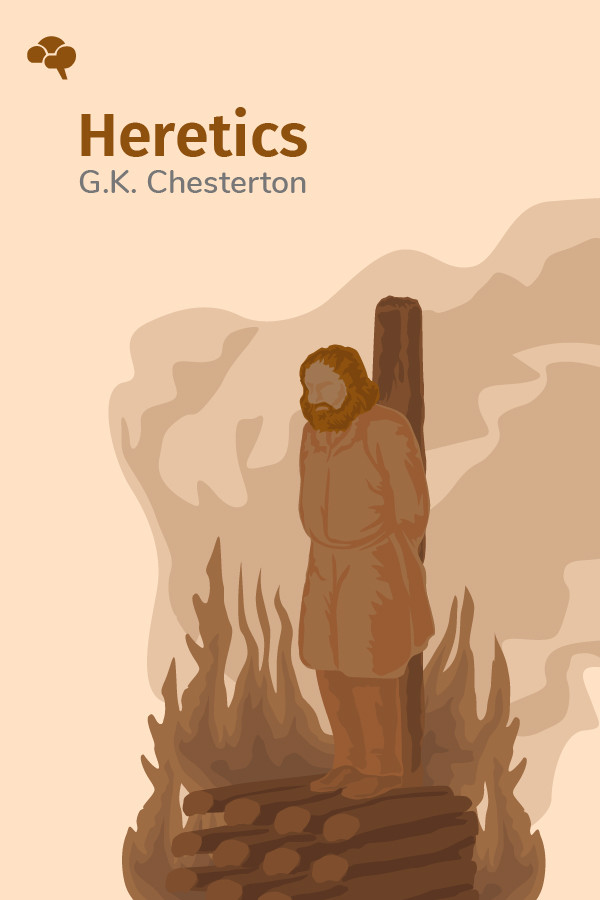G. K. Chesterton
Gilbert Keith Chesterton (29 May 1874 – 14 June 1936) was an English writer, philosopher, lay theologian, and literary and art critic. He has been referred to as the "prince of paradox". Time magazine observed of his writing style: "Whenever possible Chesterton made his points with popular sayings, proverbs, allegories—first carefully turning them inside out."
Chesterton created the fictional priest-detective Father Brown, and wrote on apologetics. Even some of those who disagree with him have recognised the wide appeal of such works as Orthodoxy and The Everlasting Man. Chesterton routinely referred to himself as an "orthodox" Christian, and came to identify this position more and more with Catholicism, eventually converting to Catholicism from High Church Anglicanism. George Bernard Shaw, his "friendly enemy", said of him, "He was a man of colossal genius." Biographers have identified him as a successor to such Victorian authors as Matthew Arnold, Thomas Carlyle, Cardinal John Henry Newman, and John Ruskin.
Orthodoxy
G.K. Chesterton is considered one of the most prolific writers of the twentieth century. He wrote that he was a pagan at age 12 and an agnostic by 16. Orthodoxy is the story of how—to his own surprise—his sophisticated doubts and objections brought him to an ancient faith.
Heretics
In a famous set of essays published in 1905, G.K. Chesterton explains why he takes issue with certain fashionable thinkers and trends of thought. Among the writers he takes on are Rudyard Kipling (author of The Jungle Book) and George Bernard Shaw (author of Pygmalion). The insights preserve the present tense, as if the author and his contemporaries were still living. The ideas they held to certainly still are.
Bio information sourced from Wikipedia


